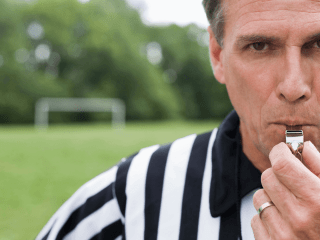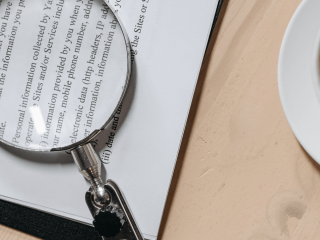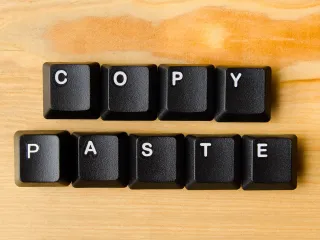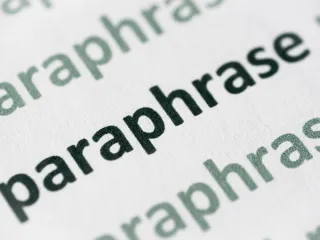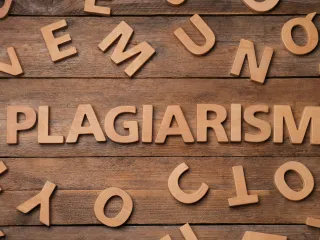Copyright and plagiarism are terms often used interchangeably, but they refer to very different concepts. While they are both related to the unauthorized use of someone else’s work, the consequences of each can vary significantly.
We’ll explore the distinctions between these concepts, the legal implications of not doing your own work, how it affects academia, and other ethical considerations.
Whether you are a student, a writer, or simply someone who uses content created by others, understanding copyright vs. plagiarism is crucial to ensuring that you are not infringing on someone else’s rights or reputation.
What Is Plagiarism?
In a nutshell, the definition of plagiarism is using another individual’s work without proper attribution or permission. It is a form of intellectual theft and is punished equally in both the professional and academic worlds. Note that plagiarism is unethical but not illegal.
Plagiarism can take many different forms, such as copying someone else’s writing word-for-word without using quotation marks, trying to paraphrase their work without giving them proper credit, or even using their ideas without acknowledging them.
Plagiarism is not limited to just written work but can also include passing off someone else’s images, videos, music, or any other creative content.
It is important to note that unintentional plagiarism is still considered plagiarism and is not an excuse for failing to utilize proper citations.
Therefore, it is essential to understand the different types of plagiarism, such as self-plagiarism, mosaic plagiarism, and accidental plagiarism, and take steps to avoid them.
Consequences of Plagiarism
Plagiarism is taken seriously, regardless of who commits the act. In schools, plagiarism can result in disciplinary action, which may include failing the assignment or even the course. Repeated plagiarism offenses may lead to suspension or expulsion from school.
In the workplace, depending on the severity of the offense, an employee may receive a warning, be demoted, or even be fired from their job. Therefore, employees need to respect intellectual property rights and avoid any actions that can harm their reputation or their company’s reputation.
One of the most significant consequences of plagiarism affects the original author whose work is stolen. For example, if the author’s content is plagiarized, they may lose potential revenue or royalties from the unauthorized use of their original work.
Moreover, plagiarism can damage the author’s reputation and make it challenging for them to sell their work or secure future writing opportunities. So, though there aren’t legal consequences, it’s not a victimless offense.
What Is Copyright Infringement?
Ultimately, the copyright vs. plagiarism difference comes down to legality. Copyright infringement is the unauthorized use of another person’s original creative works, which includes literary, artistic, musical, or other types of content protected by copyright law.
It is the violation of the exclusive rights granted to a copyright owner, which are reproduction, distribution, performance, and display of the work. The concept of copyright laws is to protect the expression of an idea, not the idea itself.
Copyright does not protect facts, ideas, or concepts; it only covers the original expression of those ideas. This means you cannot use someone’s exact words or images without permission, but you can use the same ideas in your own words or images.
Creators of original works are granted exclusive control over how their work is used, distributed, and displayed. Copyright owners have the right to sell, license, or otherwise exploit their work, as well as prevent others from doing so without their permission. This control allows creators to protect the value of their work and earn a living from it.
Fair use is an exception to the exclusive rights granted to copyright owners. It allows for limited use of copyrighted material without permission for purposes such as criticism, comment, news reporting, teaching, scholarship, or research.
Consequences of Copyright Infringement
Copyright infringement is not only unethical but also illegal. When someone uses or reproduces a copyrighted work without permission, they break the law. The consequences of copyright infringement can be severe, and legal action can be pursued by the original author.
In some cases, a cease and desist letter may be sent to the infringing party to demand they stop using the copyrighted material. If the issue cannot be resolved through a cease and desist letter, the copyright owner may decide to take the matter to court. If found guilty, the infringing party may have to pay damages to the copyright holder, which can be substantial.
The infringing party may be ordered to stop using the copyrighted material and destroy all existing copies. In extreme cases, criminal charges may also be pursued.
Examples of Plagiarism and Copyright Infringement
In case it’s still hard to understand copyright infringement vs. plagiarism, here are a few examples that cover the key differences between copyright violation, plagiarism of original work, and also both occurring simultaneously.
Plagiarism But Not Copyright Infringement
Let’s say a student writes a research paper and includes a paragraph from an article they found online. Instead of properly citing the source and crediting the original author, the student copies and pastes the paragraph into their paper as if it were their work. This is an act of plagiarism because the student is presenting someone else’s work as their own without proper attribution.
However, in this scenario, it may not be copyright infringement because the student is not reproducing the entire article or a significant portion of it but rather just a single paragraph. Additionally, the student may be able to claim fair use depending on how they incorporated the content.
Copyright Infringement But Not Plagiarism
An example of copyright infringement but not plagiarism could be a scenario where a person creates a website that features articles written by someone else without getting their permission.
In this case, the content may have been appropriately cited or attributed. Still, the website owner did not obtain the necessary permissions to use the content, which violates the owner’s exclusive right to control the distribution of their work.
This would be a case of copyright infringement but not plagiarism since the original source of the content was properly acknowledged.
Both Plagiarism and Copyright Infringement
Suppose a student copies and pastes a large section of text from a website into their research paper without citing the source. It is plagiarism because they are presenting someone else’s work as their own without giving credit.
But let’s also say that the website they copied from was protected by copyright, and the student did not have permission to use that text.
This situation presents copyright issues because the student used the original author’s work without their permission, violating their legal rights as the owner of the work. So in this scenario, the student has committed both plagiarism and copyright infringement.
How To Avoid Copyright Infringement and Plagiarism
It’s crucial to know the difference between copyright vs. plagiarism, though they both have consequences.
One of the most effective ways to avoid plagiarism and copyright infringement is to use a plagiarism checker. With so many online options, it can be challenging to know which one to choose. However, one tool that stands out is our plagiarism checker.
Here at Quetext, we offer a comprehensive tool designed to quickly and accurately scan your work for any instances of plagiarism. The tool checks against an extensive database of published works and websites, making it highly effective at identifying any matches to existing content.
We can help verify your writing (or that of your students or hired copywriters) for originality, as well as efficiently add MLA/APA/Chicago-style citations where needed. Overall, our tool is a valuable resource for anyone who takes their writing seriously.


